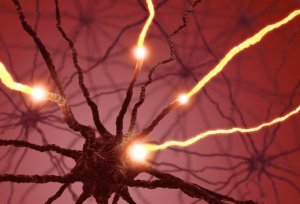The Pleasure Hormone Serotonin and How It Affects Your Body

The pleasure hormone serotonin is a chemical that our neurons produce to communicate with each other. It is a neurotransmitter found in several regions of our central nervous system. Dubbed by some researchers as the happiness hormone, it is a sedative and an antidepressant substance, which has a direct impact on our mood.
Among its many functions, it intervenes in our body, regulating and balancing our appetite, through the sensation of feeling full. It is also responsible for regulating our sleep cycles, but an excessive level of this neurotransmitter can lead to insomnia.
It plays an important role in our sexuality, since when it is at moderately elevated levels, there is an increase in sexual desire. Conversely, when it is at low levels it may be responsible for the decrease in sexual appetite.

Serotonin also intervenes in anger, aggression, mood adjustment, body temperature and the sensation of pain.
Serotonin is the objective measure of our state of mind
What does serotonin do in our body?
At appropriate levels, serotonin produces a feeling of pleasure and well-being in our body. Conversely, when it is at low levels, due to poor diet or prolonged periods of stress, it is associated with anxiety disorders.
One of the most important functions it has is in the regulation of body temperature. A difference of a few degrees in our body temperature can lead to a mass destruction of large groups of cellular tissues.
It also plays an important role in the health of our bones. People who take antidepressants (serotonin reuptake inhibitors) may see their bone density affected. In childhood, it regulates the secretion of hormones, such as growth hormones. Changes in the level of this substance have been associated with mental imbalances such as schizophrenia or childhood autism.
“The body must be in perfect condition. If the body deteriorates, the chess deteriorates. You can not separate body and mind “
–Bobby Fischer–
The Well-Being and Pleasure Hormone
Research on our well-being has revealed valuable information about the sources of individual happiness. An important discovery is found in how people show a greater or lesser tendency towards happiness. If we made a cake and included all the factors that influence happiness and divided it into 100 portions, 50 would correspond to genetics.
In particular, the gene that transports serotonin -the 5-HTTLPR gene – is the one responsible for the feeling of happiness. Jan-Emmanuel De Neve, the author of the study that highlighted the importance of this gene, also warns that it is not just a gene that determines whether or not a person feels satisfied with their life. De Neve points out that it is not yet clear how this gene influences the brain, but adequate levels of the 5-HTTLPR gene are known to increase a person’s predisposition to happiness.
“Happiness does not depend on achievements or ideal situations, but on our mental health”
-Rafael Santandreu-

Looking for happiness? Increase your serotonin levels
Raising our serotonin levels naturally is one of the best things we can do for our level of happiness. Practicing relaxation exercises on a regular basis helps us eliminate stress, sleep well and feel rested. Relaxation exercises consist in relaxing the parts of our body through the tensing and relaxing of the muscles.
Performing activities that are pleasurable and make us feel good makes the serotonin levels increase, thereby improving our mood. Sunbathing and maintaining a regular sleep cycle helps us maintain a correct balance of our serotonin levels, impacting directly on our sense of happiness.
If you want to be full to the brim of serotonin, you have to avoid excessive intake of alcohol, refined sugars and flours, energy drinks or caffeine, and also medicines.

In addition, it should be noted that genetic factors also affect the levels and production of serotonin, which explains why some people are more likely to develop certain disorders than others.
“Happiness is internal, not external; therefore, it does not depend on what we have, but on what we are “
Henry Van Dyke
The pleasure hormone serotonin is a chemical that our neurons produce to communicate with each other. It is a neurotransmitter found in several regions of our central nervous system. Dubbed by some researchers as the happiness hormone, it is a sedative and an antidepressant substance, which has a direct impact on our mood.
Among its many functions, it intervenes in our body, regulating and balancing our appetite, through the sensation of feeling full. It is also responsible for regulating our sleep cycles, but an excessive level of this neurotransmitter can lead to insomnia.
It plays an important role in our sexuality, since when it is at moderately elevated levels, there is an increase in sexual desire. Conversely, when it is at low levels it may be responsible for the decrease in sexual appetite.

Serotonin also intervenes in anger, aggression, mood adjustment, body temperature and the sensation of pain.
Serotonin is the objective measure of our state of mind
What does serotonin do in our body?
At appropriate levels, serotonin produces a feeling of pleasure and well-being in our body. Conversely, when it is at low levels, due to poor diet or prolonged periods of stress, it is associated with anxiety disorders.
One of the most important functions it has is in the regulation of body temperature. A difference of a few degrees in our body temperature can lead to a mass destruction of large groups of cellular tissues.
It also plays an important role in the health of our bones. People who take antidepressants (serotonin reuptake inhibitors) may see their bone density affected. In childhood, it regulates the secretion of hormones, such as growth hormones. Changes in the level of this substance have been associated with mental imbalances such as schizophrenia or childhood autism.
“The body must be in perfect condition. If the body deteriorates, the chess deteriorates. You can not separate body and mind “
–Bobby Fischer–
The Well-Being and Pleasure Hormone
Research on our well-being has revealed valuable information about the sources of individual happiness. An important discovery is found in how people show a greater or lesser tendency towards happiness. If we made a cake and included all the factors that influence happiness and divided it into 100 portions, 50 would correspond to genetics.
In particular, the gene that transports serotonin -the 5-HTTLPR gene – is the one responsible for the feeling of happiness. Jan-Emmanuel De Neve, the author of the study that highlighted the importance of this gene, also warns that it is not just a gene that determines whether or not a person feels satisfied with their life. De Neve points out that it is not yet clear how this gene influences the brain, but adequate levels of the 5-HTTLPR gene are known to increase a person’s predisposition to happiness.
“Happiness does not depend on achievements or ideal situations, but on our mental health”
-Rafael Santandreu-

Looking for happiness? Increase your serotonin levels
Raising our serotonin levels naturally is one of the best things we can do for our level of happiness. Practicing relaxation exercises on a regular basis helps us eliminate stress, sleep well and feel rested. Relaxation exercises consist in relaxing the parts of our body through the tensing and relaxing of the muscles.
Performing activities that are pleasurable and make us feel good makes the serotonin levels increase, thereby improving our mood. Sunbathing and maintaining a regular sleep cycle helps us maintain a correct balance of our serotonin levels, impacting directly on our sense of happiness.
If you want to be full to the brim of serotonin, you have to avoid excessive intake of alcohol, refined sugars and flours, energy drinks or caffeine, and also medicines.

In addition, it should be noted that genetic factors also affect the levels and production of serotonin, which explains why some people are more likely to develop certain disorders than others.
“Happiness is internal, not external; therefore, it does not depend on what we have, but on what we are “
Henry Van Dyke
This text is provided for informational purposes only and does not replace consultation with a professional. If in doubt, consult your specialist.







